Toilet Training Tips and Tricks
Therapy Time’s In-house Occupational Therapist Rachael unpacks some toilet training tricks and tips for your little one.
Toilet training is an important developmental milestone for children that can be a challenging and stressful process for both children and their caregivers. As occupational therapists, we are trained to assess and address the underlying motor, sensory, and cognitive skills that are necessary for successful toilet training. Here are some tips and strategies to help facilitate successful toilet training:
Assess readiness: The first step in toilet training is to determine if the child is physically and developmentally ready. This includes assessing the child's muscle tone, coordination, balance, and sensory processing skills. Signs that a child may be ready for toilet training include staying dry for longer periods of time, showing interest in the bathroom, and communicating their needs.
Create a structured routine: Establishing a structured routine for toilet training can help reduce stress and anxiety for both the child and caregiver. This may include developing a schedule for toileting, creating a visual schedule or social story, and using positive reinforcement strategies.
Address sensory issues: Children with sensory processing issues may struggle with certain aspects of toilet training, such as sitting on the toilet, tolerating the sound of the flush, or using toilet paper. Occupational therapists can work with the child to address these sensory issues or develop strategies to manage these challenges.
Teach self-care skills: Occupational therapists can help teach children the self-care skills necessary for successful toilet training, such as washing hands, pulling up pants, and wiping properly. They can also help children with fine motor delays learn how to manipulate buttons, zips, and other dressing fasteners.
Modify the environment: Occupational therapists can help modify the environment to make it more conducive to successful toilet training. This may include using adaptive equipment such as toilet seat reducers or footstools, creating a calming sensory environment, or modifying the lighting or noise level.
Use positive reinforcement: Positive reinforcement is a powerful tool in toilet training. This can include verbal praise, stickers, or small rewards for successful toileting. Occupational therapists can work with caregivers to develop a positive reinforcement plan that is tailored to the child's interests and parenting preferences.
Address accidents and setbacks: Accidents and setbacks are a normal part of the toilet training process. Occupational therapists can help caregivers develop a plan for addressing accidents and setbacks in a positive and supportive way.
Introception: Introception is the eight “sense” in our sensory system that describes the signals we detect in our bodies from our internal organs. These signals are how we know we are hungry, thirsty, hot, cold, tired, and how we know we need to go to the toilet. Some children with developmental delays or disabilities find it challenging to recognise these clues in their body. Occupational therapists can work with children to build introceptive awareness.
Feelings of safety: It is essential for a child to feel safe, calm and regulated to have toileting success. Sometimes set-backs, uncertainty and difficulty with change can contribute to feelings of nervousness or anxiety around toilet training for a child. Occupational therapists can work with a family to develop strategies to process and manage these emotions.
Collaborate with other healthcare providers: Occupational therapists can work collaboratively with other healthcare providers, such as pediatricians, psychologists, and speech therapists, to provide a comprehensive approach to toilet training for children with developmental delays or disabilities.
It is important to remember that every child is unique and may require a different approach to toilet training. As occupational therapists, we take a holistic and individualized approach to toilet training that considers the child's physical, sensory, and cognitive needs. By working collaboratively with caregivers and other healthcare providers, we can help children achieve this important developmental milestone and improve their overall quality of life.
Toilet training can be a challenging process for both children and caregivers, but with the right strategies and support, it can be a successful and positive experience. Occupational therapists can play a valuable role in facilitating successful toilet training by addressing the underlying motor, sensory, and cognitive skills necessary for success. By taking a holistic and individualized approach to toilet training, we can help children achieve this important developmental milestone and improve their overall quality of life.
About Therapy Time
Therapy Time is a certified ESDM provider and north Brisbane Occupational Therapy service passionate about families and local communities. We work with tiny-tots, teenagers, and all the kiddies in between to do the everyday tasks they need to do, want to do and love to do. We make it our mission to partner with families by uniting their unique strengths, values and priorities to see goals fulfilled as a team. We combine our experience and professionalism with a knack for play, to deliver high quality therapy services. We support clients with developmental delays and love to work with kiddies with autism, ADHDers and those who have sensory processing challenges. We would love to meet with you to discuss how we can support you in working towards your goals.
With short waitlist and growing availability we would love to meet with you. Book your session in clinic or on telehealth now.
